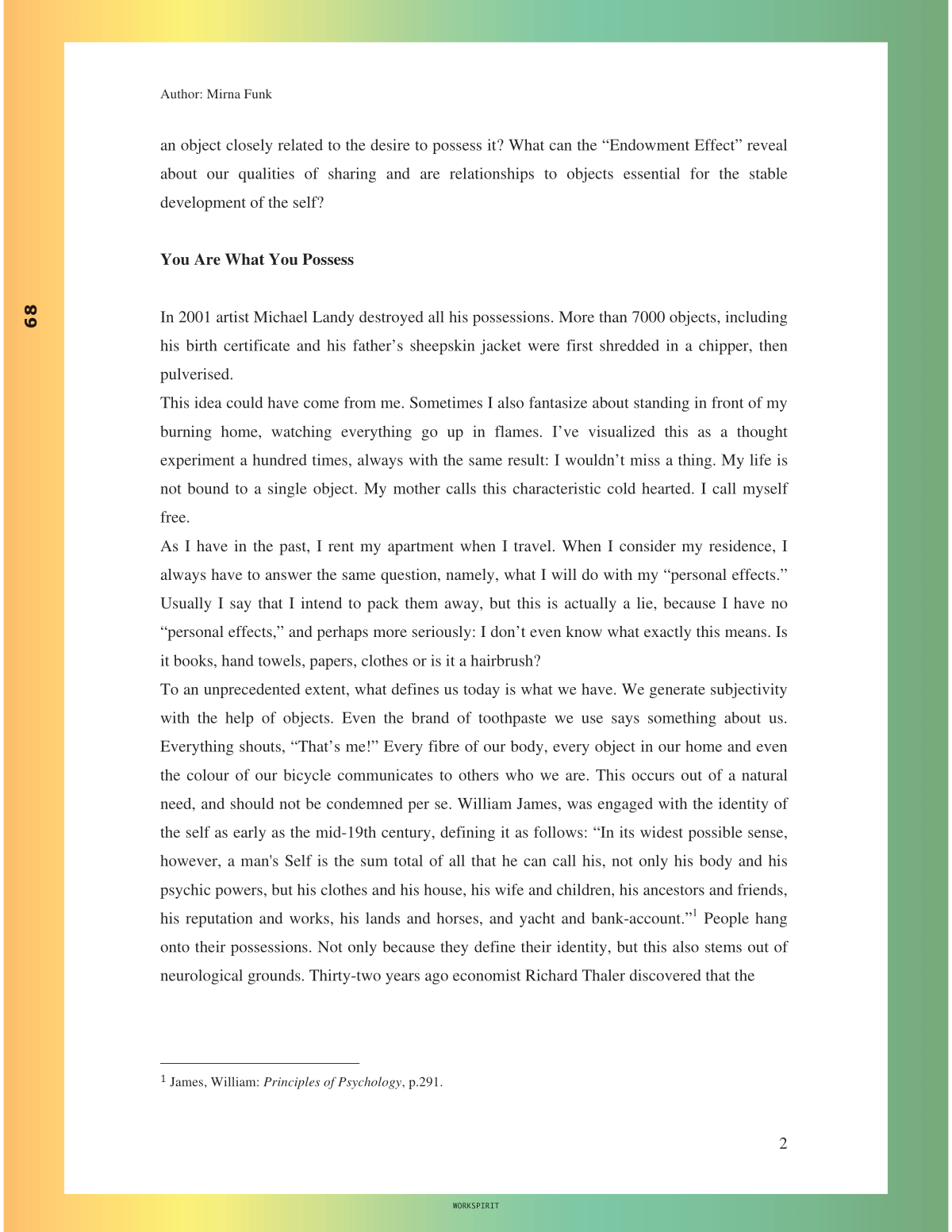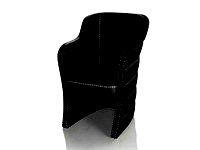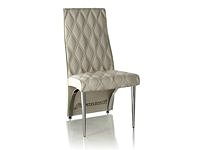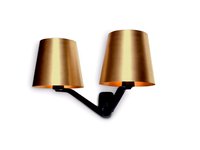68
WORKSPIRIT
Author: Mirna Funk
�
�
2
an object closely related to the desire to possess it? What can the “Endowment Effect” reveal
about our qualities of sharing and are relationships to objects essential for the stable
development of the self?
You Are What You Possess
In 2001 artist Michael Landy destroyed all his possessions. More than 7000 objects, including
his birth certificate and his father’s sheepskin jacket were first shredded in a chipper, then
pulverised.
This idea could have come from me. Sometimes I also fantasize about standing in front of my
burning home, watching everything go up in flames. I’ve visualized this as a thought
experiment a hundred times, always with the same result: I wouldn’t miss a thing. My life is
not bound to a single object. My mother calls this characteristic cold hearted. I call myself
free.
As I have in the past, I rent my apartment when I travel. When I consider my residence, I
always have to answer the same question, namely, what I will do with my “personal effects.”
Usually I say that I intend to pack them away, but this is actually a lie, because I have no
“personal effects,” and perhaps more seriously: I don’t even know what exactly this means. Is
it books, hand towels, papers, clothes or is it a hairbrush?
To an unprecedented extent, what defines us today is what we have. We generate subjectivity
with the help of objects. Even the brand of toothpaste we use says something about us.
Everything shouts, “That’s me!” Every fibre of our body, every object in our home and even
the colour of our bicycle communicates to others who we are. This occurs out of a natural
need, and should not be condemned per se. William James, was engaged with the identity of
the self as early as the mid-19th century, defining it as follows: “In its widest possible sense,
however, a man's Self is the sum total of all that he can call his, not only his body and his
psychic powers, but his clothes and his house, his wife and children, his ancestors and friends,
his reputation and works, his lands and horses, and yacht and bank-account.”1 People hang
onto their possessions. Not only because they define their identity, but this also stems out of
neurological grounds. Thirty-two years ago economist Richard Thaler discovered that the
��������������������������������������������������������
��James, William: Principles of Psychology, p.291.
�







